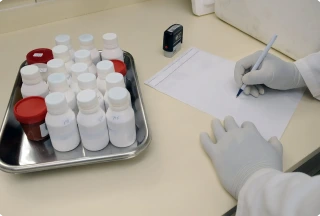
Updated RSV guidance recommendations due to limited supply of drug.
RSV guidance recommendations from the CDC updated due to limited supply of drug antibody designed to protect infants from the sometimes fatal respiratory disease.
The CDC has issued updated guidance for RSV (Respiratory Syncytial Virus) due to a limited supply of monoclonal antibodies designed to protect infants from this potentially fatal respiratory disease. These changes aim to help healthcare providers prioritize high-risk patients while maximizing the available resources.
Why Is There a Limited Supply?
The supply shortage of RSV antibody treatments, such as nirsevimab, stems from:
- Surging Demand: Increased RSV cases in vulnerable populations.
- Supply Chain Challenges: Delays in manufacturing and distribution have impacted availability.
- Production Limits: The time required to produce monoclonal antibodies makes scaling up challenging.
Key Updates in RSV Guidance from the CDC
The CDC’s recommendations emphasize:
- Prioritizing High-Risk Infants: Focus on newborns, preemies, and those with underlying medical conditions.
- Alternative Preventive Measures: Encourage infection control practices, including handwashing, limiting contact with sick individuals, and mask usage in high-risk environments.
- Dosing Adjustments: Modify dosing schedules to maximize the efficacy of the limited antibody supply.
These updates aim to ensure that the most vulnerable patients receive the protection they need while minimizing risks for others.
Implications for Healthcare Facilities
The limited supply presents challenges for hospitals and clinics, including:
- Ethical Resource Allocation: Ensuring fair distribution of antibodies across patient populations.
- Provider Strain: Staff must adjust workflows to adhere to updated guidance.
- Patient Communication: Explaining the updated guidelines and shortage impacts to families.
How xLocums Can Help During This RSV Crisis
At xLocums, we support healthcare facilities by providing:
- Staffing Solutions: Access qualified locum tenens clinicians to manage RSV-related patient care effectively.
- Specialized Expertise: Place pediatric and respiratory care specialists where they are needed most.
- Flexible Coverage: Bridge gaps caused by rising RSV cases and staffing shortages.
By partnering with xLocums, hospitals and clinics can ensure continuity of care despite resource limitations.
Navigating the RSV Challenge Together
The CDC’s updated RSV guidance underscores the importance of collaboration and adaptability in healthcare. While the limited supply of antibodies poses challenges, these recommendations and innovative solutions from staffing partners like xLocums can help mitigate the strain on providers and facilities.
What are your thoughts on the updated RSV guidance? Share your insights in the comments below, or visit xLocums.com to learn how we support healthcare teams during critical times.


